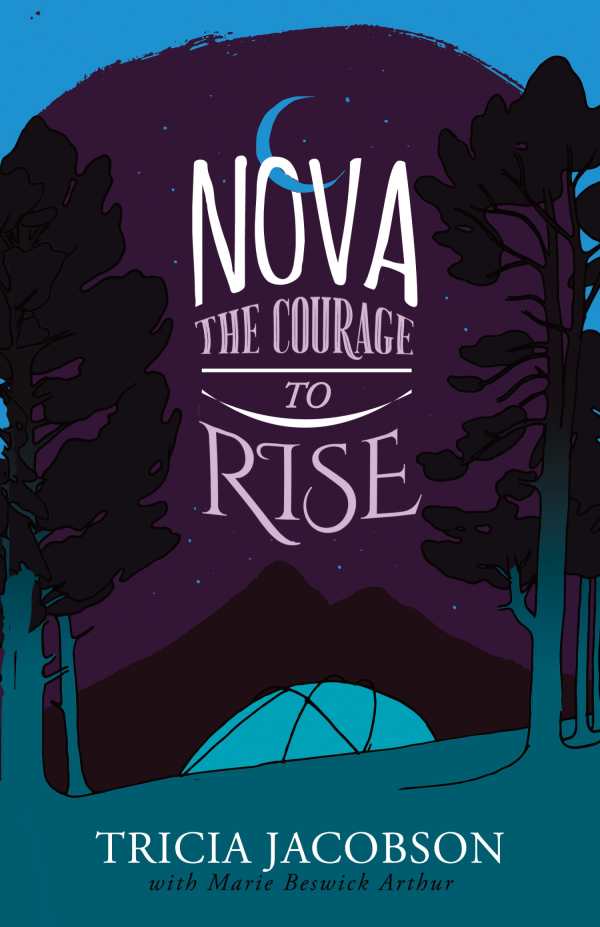Nova
The Courage to Rise
Nova is an introspective novel about teenagers in search of self-confidence, who find meaningful connections when they embrace others.
In Tricia Jacobson’s brisk, hopeful young adult novel Nova, troubled teenagers use a self-improvement plan to reconcile their identities with their pasts.
Aurora and Stella are motherless seventeen-year-olds who camp in the city to evade their circumstances: one is part of the foster care system, and the other resides with her grandfather. They struggle to cultivate the feelings of self-worth that they deserve. When they find a list labelled The Quest, Stella is eager to believe in its possibilities. The girls distill the list into “faith, confidence, positive self-talk and body image, gratitude, and kindness,” and set out to learn about each.
Structured around the girl’s conversations with each other, the text emphasizes their heartfelt connection. Their thoughts, though, are patterned in such earnest terms that they come to seem naïve. Their habit of retelling children’s stories aloud to each other further contributes to the mismatch between their interests, behaviors, and stated ages. This makes them both vulnerable and unusual; while their vague, tumultuous backgrounds and their solo-camping suggest a certain precocity born of self-reliance, such maturity recedes in each other’s company.
The girls come to function as vessels for the book’s motivational messages, which unfold in programmatic sections whose shifts in perspective are jarring. Despite Aurora calling their situation a “hero’s journey,” the lessons they learn often come from received sources, rather than from the girls’ firsthand experiences, minimizing their impacts.
The book’s transitions are also abrupt. One section features a tree whose writings are directed at Aurora, though there’s limited explanation about why a tree is involved in the tale. The tree’s comments are about beauty expectations and authenticity; they arrive at the adage to “live your truth.” But the idea is fraught, elevating selfhood as the ruler by which all else is measured. It is also contradictory when considered against the book’s later Christian themes.
The tree’s maternal concern, and its recounting of Aurora’s upbringing, is another ambiguous development. How the tree knows about her implies an unseen power, but the mystical thread is under explored. Aurora later reframes the tree’s ideas for Stella’s benefit, incorporating over familiar observations into them: about people’s excessive phone use; and about the gulf between curated social media and reality. Stella’s own revelations from the tree are encouraging, but too generalized, ideas about friendship. As other characters impart additional, unprompted wisdom, the book becomes repetitive. Individuals meet one of the girls, speak, and then depart; the result is loose and unsatisfying, forcing principles of purposeful living into the story.
Nova is a introspective novel about teenagers in search of self-confidence, who find meaningful connections when they embrace others.
Reviewed by
Karen Rigby
Disclosure: This article is not an endorsement, but a review. The publisher of this book provided free copies of the book and paid a small fee to have their book reviewed by a professional reviewer. Foreword Reviews and Clarion Reviews make no guarantee that the publisher will receive a positive review. Foreword Magazine, Inc. is disclosing this in accordance with the Federal Trade Commission’s 16 CFR, Part 255.

